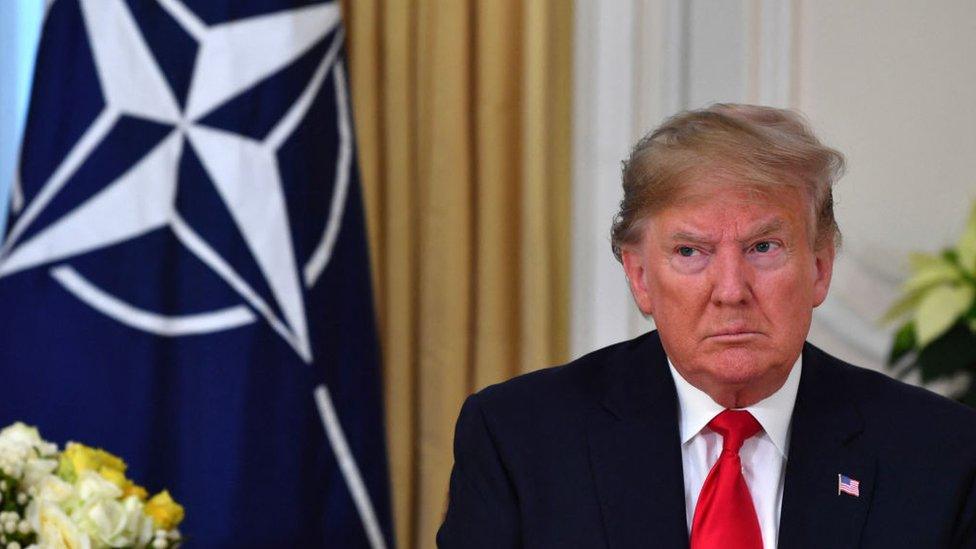Syria war: Brutal endgame in Idlib risks spilling over
- Published
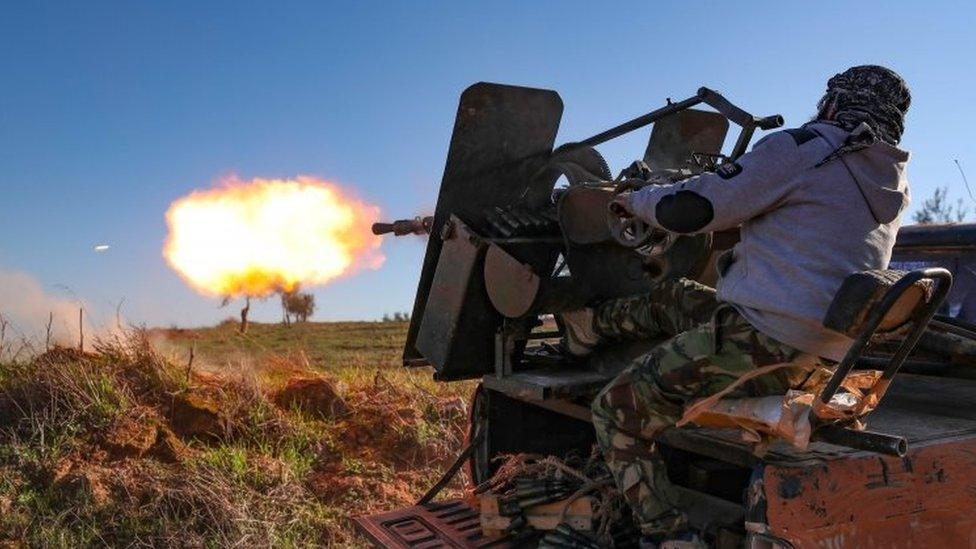
Idlib is Syria's last province largely controlled by rebel groups
The crisis in Syria's Idlib province - already a humanitarian catastrophe - is fast becoming a geopolitical one as well.
The Syrian conflict has long had a dual aspect - both civil war and proxy war, with several outside players backing various parties to further their own strategic ends.
Now, as the conflict in north-western Syria comes to a head, these two aspects are merging to form a powder keg, whose explosion could have profound implications way beyond the Middle East.
Idlib is the last Syrian province where significant territory remains in rebel hands.
In 2017, it appeared that Russia and Iran (the main backers of the Syrian regime), and Turkey (the main supporter of some of the rebel groups there) had come to an understanding:
There would be an effective ceasefire in the area
All of these players would retain some kind of presence, pending a final deal
The rebels would disarm
Turkey set about establishing a dozen observation posts manned by its own troops
A negotiated future was to be sought
Was this a real way forward or a cynical ploy on the part of all three countries to buy time?
It's hard to say. But the renewed Syrian government offensive into Idlib, backed by Russian air power and Iranian proxies on the ground, has effectively ended any hope of a deal.
Syrian regime forces and their allies have made significant progress, taking back one key highway from rebel control.
In the process, a number of the Turkish positions have become isolated.
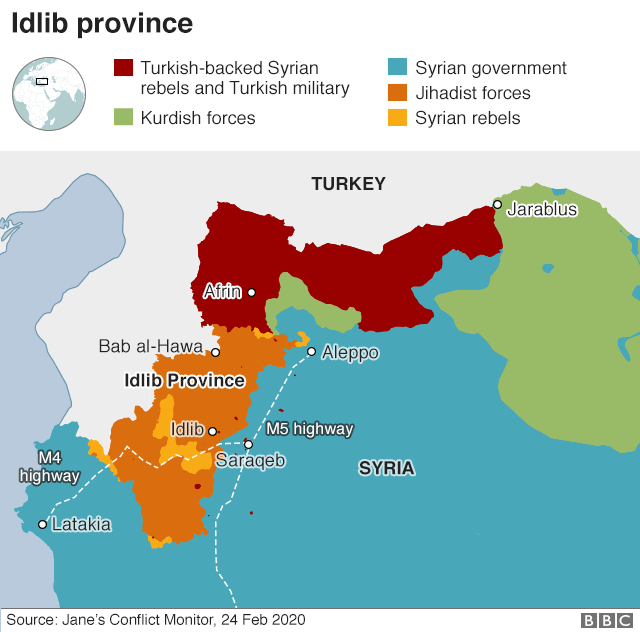

Over the past few weeks Turkish and Syrian force have come into conflict; Ankara has reinforced its troops; and Turkish President Recep Tayyip Erdogan issued an ultimatum.
He called upon Syrian government forces to withdraw from areas that had been designated as part of a de-escalation zone by the end of February. If not, he threatened a significant military response.
Watch: Turkey's defence ministry reiterates his country's threat to Syria
The fighting continued anyway.
Earlier this week. Syrian opposition forces - who are backed by Turkey - sought to retake the town of Saraqeb, important for the control of another strategic highway, the M-4.
Only on Thursday, President Erdogan commented that "the developments in Idlib are now in favour of Turkey".
No accidental attack
Then, later on Thursday, came the devastating air strike on Turkish forces.
Details of what actually happened are only slowly emerging.
The Turks have been at pains to blame the Syrian Air Force, though it's clear that Russian jets have very much been involved in some of the recent fighting.
The possibility, let's put it no stronger than that, that Moscow's war planes may have hit forces of a Nato country operating in Syria, underscores the gravity of what is going on.
But whatever the nationality of the aircraft involved, this seems, at least from Turkish reports, to be anything but an accidental attack.
They speak of a Turkish army resupply convoy being hit, with the jets subsequently targeting the Turkish outpost itself.
Turkey has responded with heavy fire against Syrian positions. The scene is set for a full-scale confrontation between Turkey and Syria.
This leaves all sorts of questions.
Will Ankara or Damascus back down? Can Moscow - hardly a neutral party - in some way encourage de-escalation?
And is there any way to persuade the Syrian regime to halt its wider offensive in Idlib?
This appears doubtful since Syrian President Bashar al-Assad seems intent on taking back control of the area, and the Russians have already been backing him to this end.
Human tragedy
These are the immediate questions.
But there are others of a more fundamental nature; questions that are thrown into starker light by what is happening on the ground.
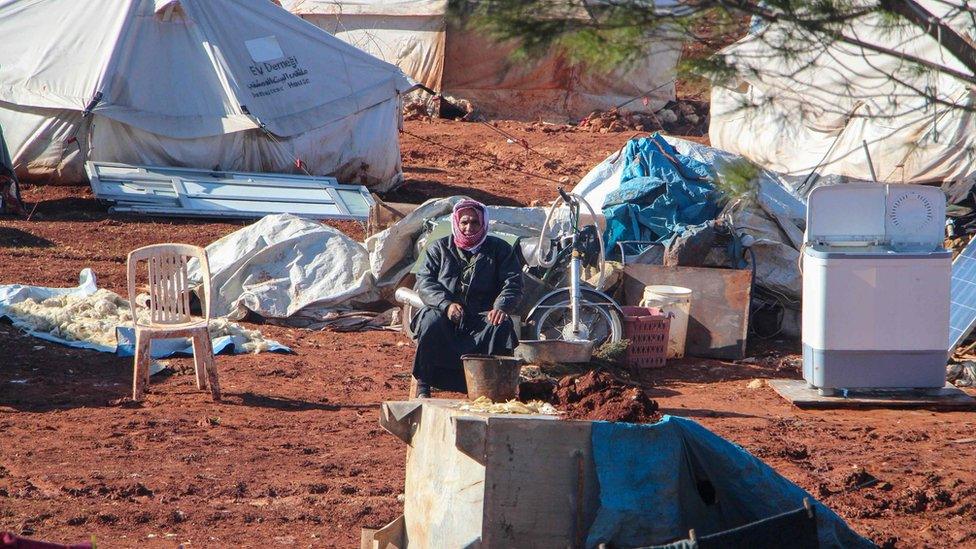
Almost 600,000 Syrian civilians have fled their homes since December
What of the human tragedy that is unfolding? In the Syrian winter, hundreds of thousands of civilians are displaced, many for the second or third time.
Turkey has already taken in some 3.7 million refugees. It is estimated that there could be some two million more people fleeing towards the Turkish border.
For all its political manoeuvring, driven in large part by its concern to prevent any autonomous Kurdish area emerging on its frontier, Turkey has been generous towards refugees.
This now is becoming a controversial issue in Turkish domestic politics, and Turkey's exasperation may lead it to send a wave of refugees towards Europe.
It has always argued that the Syria problem is not just a Turkish one but a European one as well.
But President Erdogan has few friends in the West at the moment. Turkey's relations with Nato and Washington are strained; damaged both by its assault on Kurdish forces inside northern Syria (long-time allies of the US) and its tilt towards Moscow, best exemplified by its decision, over strong US opposition, to purchase Russian surface-to-air missiles.
Bystander role for US
What we may be seeing in Idlib are the limits of President Erdogan's foreign policy; a failed attempt to triangulate between Washington and Moscow.
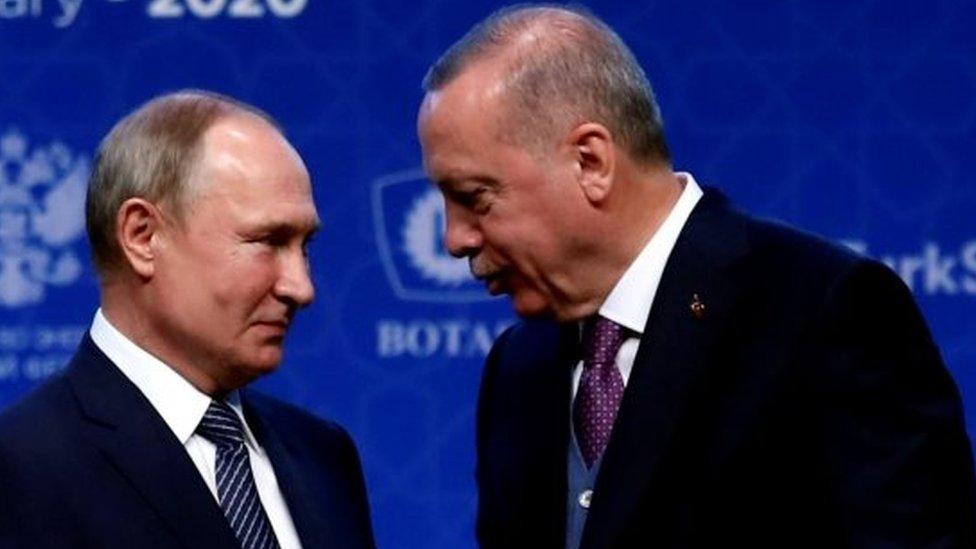
Friends or foes? Russia's President Vladimir Putin (left) and his Turkish counterpart Recep Tayyip Erdogan
Nonetheless he may still have some leverage with the Russians - they will be reluctant to push Turkey back into Washington's arms.
It is all beyond being a terrible mess, and there seems no external player who can act to reduce the tensions, other than perhaps Russia.
This is the measure of the Trump administration's failure in the Middle East.
US Defence Secretary Mark Esper spoke with his Turkish counterpart on Thursday, and according to a Pentagon statement, the two men discussed "the Assad regime's brutal aggression in Idlib, which is backed by Russia and Iran".
But Washington has largely been a bystander in Syria ever since President Trump seemed to acquiesce in Turkey's last major incursion into Syria.
Maybe a new human wave of Syrian refugees will encourage some concerted international action.
But the brutal end-game in Idlib and the plight of so many people remains a terrible indictment of the current state of global diplomacy and the self-interested posturing of so many players.
- Published18 February
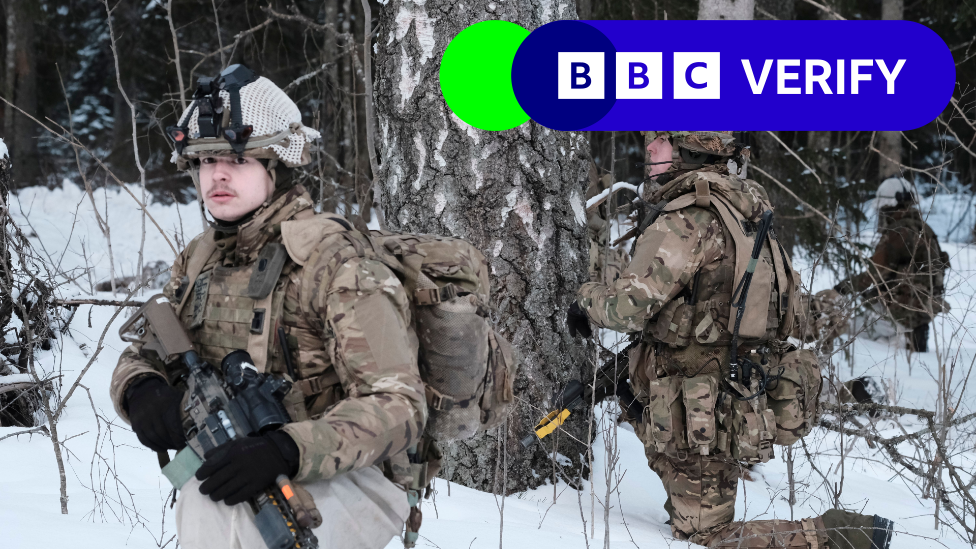
- Published11 July 2018

